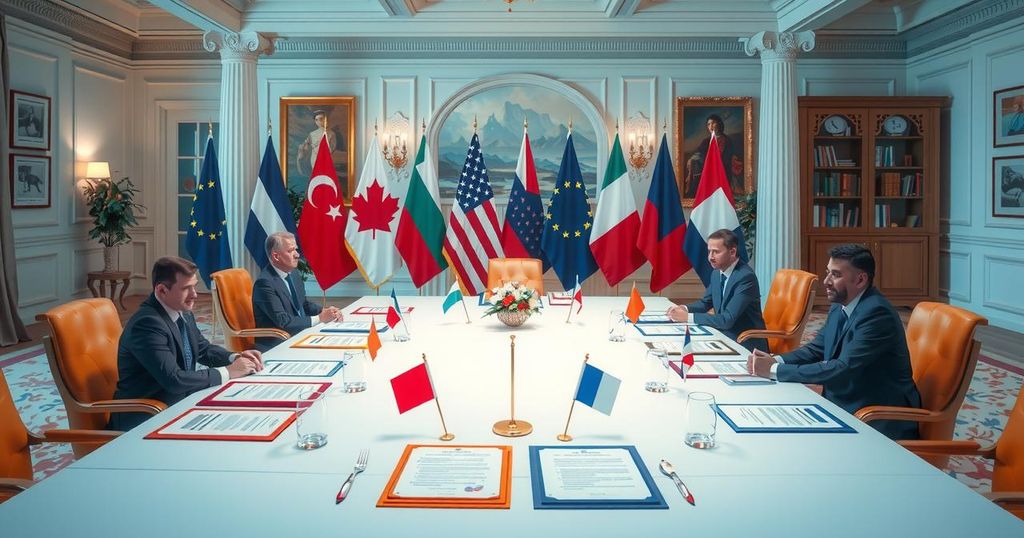Challenges in Trump’s Diplomacy: Conflicts in Gaza and Ukraine

U.S. President Trump’s diplomacy struggles with escalating violence in Gaza and stalled negotiations over Ukraine. Israel’s military operations provoke international condemnation while the U.S. maintains a pro-Israel stance. Diplomatic efforts with Russia also falter despite discussions for a ceasefire. To achieve progress, the United States must shift to multilateral diplomacy and restore alliances in Europe.
The current situation in international diplomacy reveals significant challenges for U.S. President Trump’s approach. In the Middle East, Israel has intensified military actions in Gaza, resulting in over 400 casualties, including many civilians. Israeli Prime Minister Netanyahu stated that these operations were a response to Hamas’s refusal to release hostages, raising concerns about civilian safety amidst ongoing conflict.
Such military tactics have provoked global outrage, with France and other nations condemning Israel for violating ceasefire agreements during a U.N. Security Council meeting. In contrast, the U.S. defended Israel’s actions, suggesting complicity in violence that raises ethical concerns regarding the limits of self-defense beyond what is acceptable.
The ceasefire preceding Trump’s presidency, which pressured Israel, was quickly overshadowed by a lack of resolution on critical issues like troop withdrawals from Gaza. An unwavering pro-Israel stance from the U.S. undermines prospects for lasting peace in the region.
In regards to the conflict in Ukraine, Trump’s diplomatic efforts have similarly stalled. Although Trump engaged in talks with Russian President Putin, seeking a 30-day ceasefire, Putin’s refusal complicates matters, particularly as Russian forces gain leverage in occupied regions of Ukraine. Trump’s negotiations, backed by the consensus of Ukrainian President Zelenskyy for a ceasefire, have yet to influence Moscow’s strategy.
To effectively address Russian aggression, the U.S. must reevaluate its diplomatic tactics and engage Europe and other allies to collectively apply pressure on Russia rather than negotiating unilaterally. This approach would establish a united front essential for resolving international conflicts.
President Trump’s diplomatic efforts face significant resistance both in the Middle East and Europe. The Israeli military’s aggressive actions in Gaza and the stalled ceasefire negotiations with Russia represent critical setbacks. Without addressing these underlying issues and adopting a multilateral approach, it remains unlikely that Trump’s diplomatic strategies will lead to effective breakthroughs in international relations.
Original Source: asianews.network







